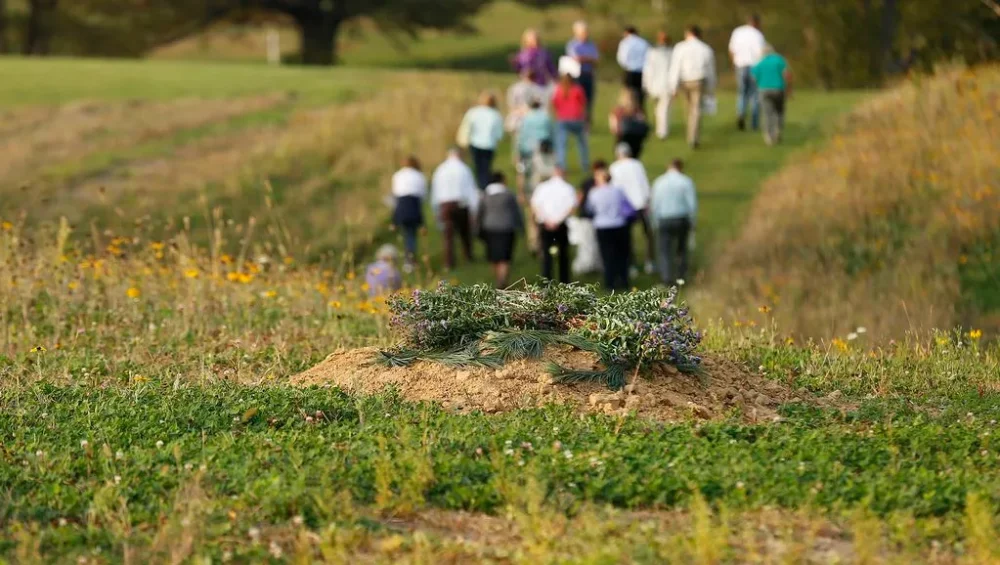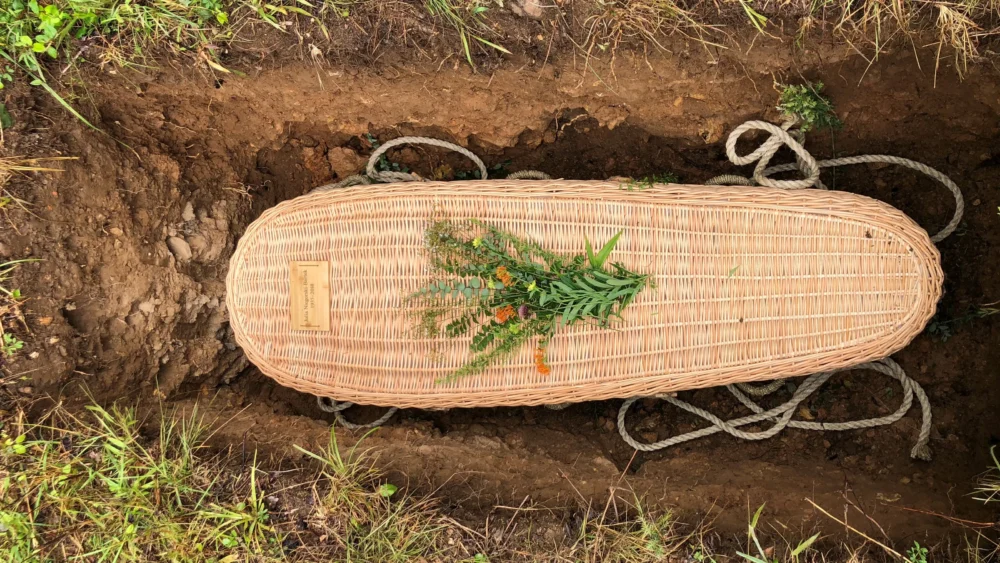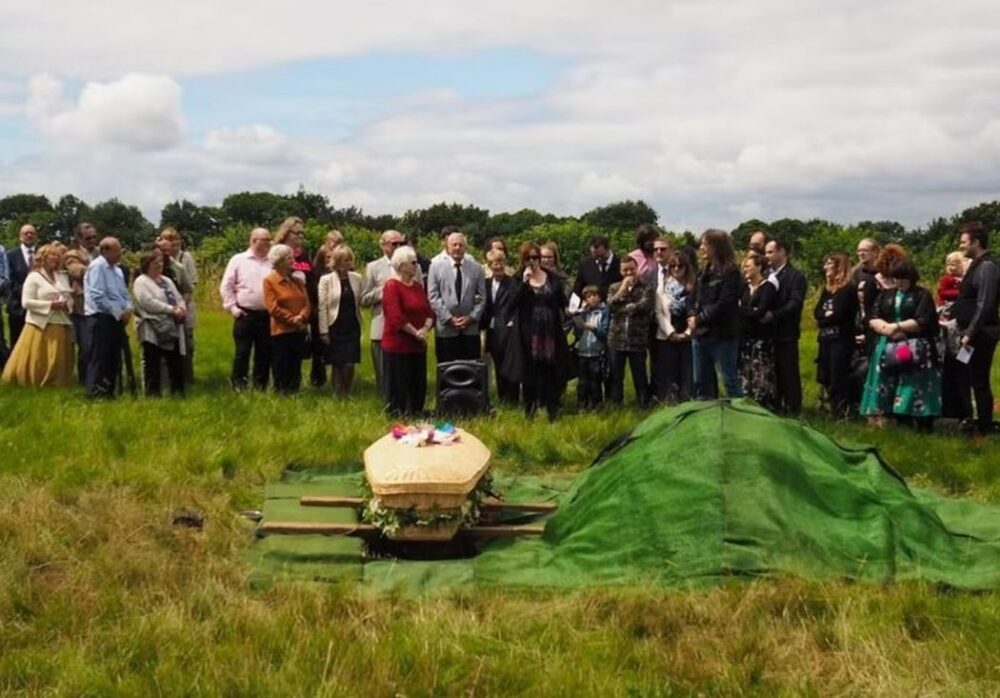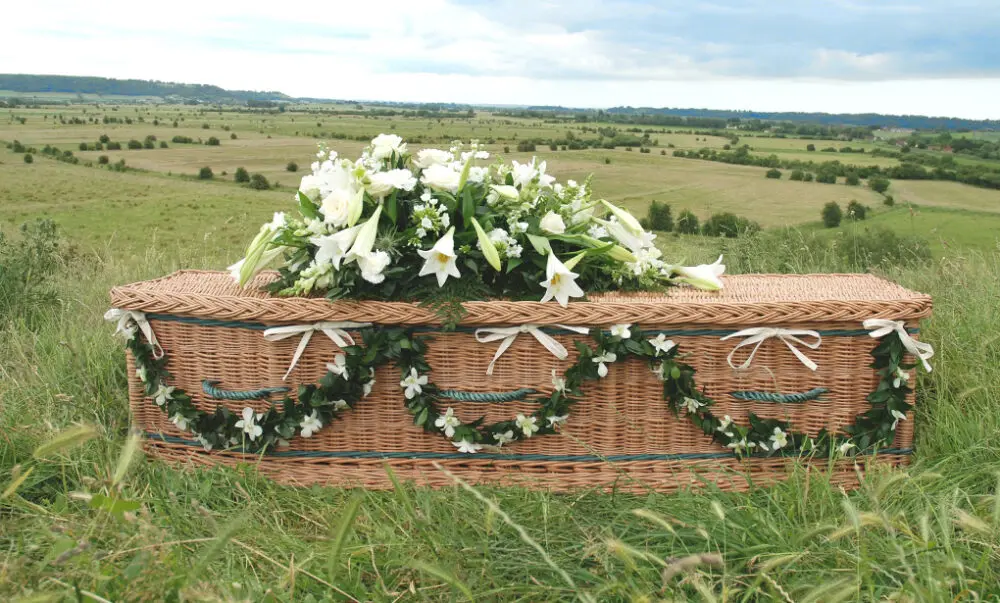In our ever-evolving world, where environmental consciousness has become an integral part of our daily lives, it is no surprise that this ethos extends to even the most profound of life’s milestones: funerals. Traditional burial practices often involve significant resource consumption and can substantially impact the environment. However, a new trend has emerged, offering a sustainable and eco-conscious alternative: green funerals.
Whether you are looking to make environmentally responsible choices for your own future arrangements or a concerned family member seeking to honour the wishes of a departed loved one, this blog post will serve as your comprehensive guide. Rosy Funeral Service can also walk you through the different types of green funerals, ranging from natural burial in serene woodland settings to the innovative concept of memorial reefs that support marine life conservation.
What are Green Funerals?
Green funerals, also known as eco-friendly or environmentally friendly funerals, are a sustainable and eco-conscious alternative to traditional burial practices. They are designed to reduce the environmental impact associated with end-of-life rituals and honour the deceased while preserving and protecting the natural world.
In green funerals, the focus is on embracing practices that minimize resource consumption and promote natural decomposition. Unlike conventional burials, which often involve non-biodegradable materials and chemicals, green funerals prioritize sustainability and ecological harmony.
Benefits of Green Funerals

Source: youtube.com
Green funerals, focusing on sustainability and eco-conscious practices, offer a range of benefits beyond traditional burial methods. By choosing environmentally friendly options, individuals and families can positively impact the planet and leave a meaningful legacy. Here are some key benefits of green funerals:
Preservation of Natural Landscapes and Ecosystems: Green funerals promote the use of natural burial sites, such as woodlands or meadows, which preserve and enhance the beauty of these landscapes. By avoiding the use of concrete burial vaults and non-biodegradable materials, green funerals help maintain the integrity of natural ecosystems.
Reduction of Carbon Footprint and Greenhouse Gas Emissions: Traditional burial practices, including embalming and cremation, can generate significant greenhouse gas emissions. On the other hand, green funerals prioritize eco-friendly practices like natural burial or aquamation, which have a lower carbon footprint and contribute less to climate change.
Sustainable Resource Management: Green funerals promote using biodegradable materials for coffins, shrouds, and urns. By choosing sustainable options made from natural materials like bamboo, willow, or recycled paper, we can reduce the demand for non-renewable resources and support sustainable manufacturing practices.
Support for Local Businesses and Artisans: Green funerals often involve collaborating with local craftsmen and artisans who create eco-friendly burial products. By supporting these businesses, we contribute to the local economy and encourage the growth of sustainable industries.
Psychological and Emotional Benefits: Choosing a green funeral can bring peace and comfort to those grieving the loss of a loved one. Being involved in environmentally friendly practices and knowing that the final resting place contributes to preserving nature can provide solace and a meaningful connection to the Earth.
Legacy of Environmental Stewardship: Opting for a green funeral allows individuals to leave a lasting legacy of environmental stewardship. By making eco-conscious choices, we inspire future generations to embrace sustainable practices and demonstrate our commitment to protecting the planet for future inhabitants.
Green funerals offer a holistic approach to end-of-life rituals, allowing us to honour our loved ones while aligning our actions with our environmental values. By embracing these environmentally friendly options, we can make a positive difference for the Earth, both in life and in death.
Environmentally Friendly Burial Options

Source: pinterest.com
Natural Burial:
Natural burial is an environmentally friendly option focusing on returning the deceased to the earth in a natural setting. It involves burying the body in a designated area, such as a woodland or meadow, without embalming chemicals or non-biodegradable materials.
Instead, biodegradable coffins, shrouds, or urns made from sustainable materials like bamboo, wicker, or recycled paper are used. This allows for natural decomposition, allowing the body to become one with the surrounding ecosystem.
Natural burial sites often prioritize the preservation of wildlife and native plants, creating serene and ecologically rich resting places for the departed.
Aquamation:
Aquamation, also known as alkaline hydrolysis or water cremation, is an alternative to traditional cremation methods. It involves placing the body in a water-filled vessel and a gentle alkaline solution. Through heat and pressure, the body is accelerated through natural decomposition.
Aquamation has several advantages over traditional cremation, including lower energy consumption, reduced greenhouse gas emissions, and the production of ashes that are free of harmful chemicals. The resulting ashes can be returned to the family for scattering or placed in biodegradable urns.
Conservation Burial:
Conservation burial is an environmentally friendly burial option that focuses on preserving natural areas. Specific tracts of land are set aside for conservation burials, ensuring the area remains protected and maintained as a natural habitat. These burial sites contribute to biodiversity conservation, wildlife habitat, and native plants.
Conservation burials often have strict guidelines to ensure that burial practices align with ecological preservation, including using biodegradable coffins or shrouds. Individuals can leave a lasting legacy of protecting and enhancing the natural environment by choosing conservation burial.
Memorial Reefs:
Memorial reefs offer a unique and environmentally friendly way to commemorate the departed while supporting marine life conservation. Cremated remains are mixed with environmentally safe materials to create artificial reefs. These reefs are then placed in designated ocean areas, providing a habitat for marine organisms to thrive and promoting the growth of underwater ecosystems.
Memorial reefs offer a serene and enduring memorial for the departed, where family and friends can visit and reflect upon the interconnectedness of life above and below the water’s surface. The placement of memorial reefs creates a lasting tribute and contributes to the preservation and restoration of marine environments.
These environmentally friendly burial options provide individuals and families with choices that align with their values and help protect the Earth’s natural resources. By embracing these alternatives, we can honour our loved ones while fostering a sustainable and harmonious relationship with the environment.
How to Plan a Green Funeral

Source: freepik.com
Planning a green funeral involves considering environmentally friendly options and incorporating sustainable practices into the funeral arrangements. Here are some steps to help you plan a green funeral:
Research Green Funeral Providers and Cemeteries:
Start by researching funeral homes, cemeteries, and burial sites that offer green or eco-friendly services. Look for providers committed to sustainable practices and offer options such as natural burial grounds or aquamation facilities. Take the time to understand their processes and environmental certifications.
Discuss Green Burial Options with Loved Ones:
Engage in open and honest conversations with your loved ones about your desire for a green funeral. Discuss the benefits of environmentally friendly options and how they align with your values. Document your preferences and inform your family and friends of your wishes.
Consider Legal Requirements and Regulations:
Familiarise yourself with local regulations and legal requirements for green burials in your area. Different regions may have specific guidelines for natural burial grounds, burial depths, or documentation needed. Consult with local authorities or funeral directors to ensure compliance with legal obligations.
Choose Sustainable Materials:
Select eco-friendly materials for the funeral, including biodegradable coffins, shrouds, or urns. These options are typically made from natural materials like bamboo, wicker, or recycled paper. Avoid using embalming chemicals and opt for natural preservation methods if desired.
Minimize Funeral Transportation Impact:
Reduce the carbon footprint associated with funeral transportation by considering options such as hybrid or electric vehicles. Carpooling or arranging a shared transportation for attendees can also minimise the environmental impact.
Embrace Digital and Sustainable Invitations:
Reduce paper waste by sending digital invitations or using recycled paper for printed invitations if necessary. Encourage attendees to RSVP electronically or through sustainable means.
Incorporate Nature-Friendly Elements:
Embrace the beauty of nature by incorporating elements like flowers, plants, and organic decorations that are locally sourced and free from harmful pesticides or chemicals. Consider using biodegradable memorial markers or GPS-based systems instead of traditional non-biodegradable markers for grave locations.
Explore Memorial Donations:
Instead of traditional funeral flower arrangements, suggest that attendees make donations to environmental or conservation organisations in memory of the deceased. This way, you can contribute to causes that align with your values and create a lasting impact beyond the funeral.
Involve Green-Focused Funeral Directors:
Seek the assistance of funeral directors who are experienced in planning green funerals. They can guide you through the process, offer suggestions, and ensure your wishes are respectfully and sustainably fulfilled.
Planning a green funeral involves conscious decision-making and understanding of the available options. By incorporating environmentally friendly practices into the funeral arrangements, you can honour your loved one’s memory while promoting sustainability and leaving a positive legacy for future generations.
Conclusion

Source: youtube.com
Green funerals offer a unique blend of reverence for the departed and environmental stewardship. They provide an opportunity to leave a lasting legacy in the memories of those left behind and in the positive impact on the planet. By opting for biodegradable materials, supporting local businesses, and engaging in open conversations about green funeral choices, we can inspire others to consider sustainable end-of-life options.
Let us continue to explore and embrace environmentally friendly burial options, championing a more sustainable and compassionate approach to the end-of-life journey. Through green funerals, we can celebrate the lives of our loved ones, honour their memories, and forge a path towards a greener and more harmonious future for all.


















